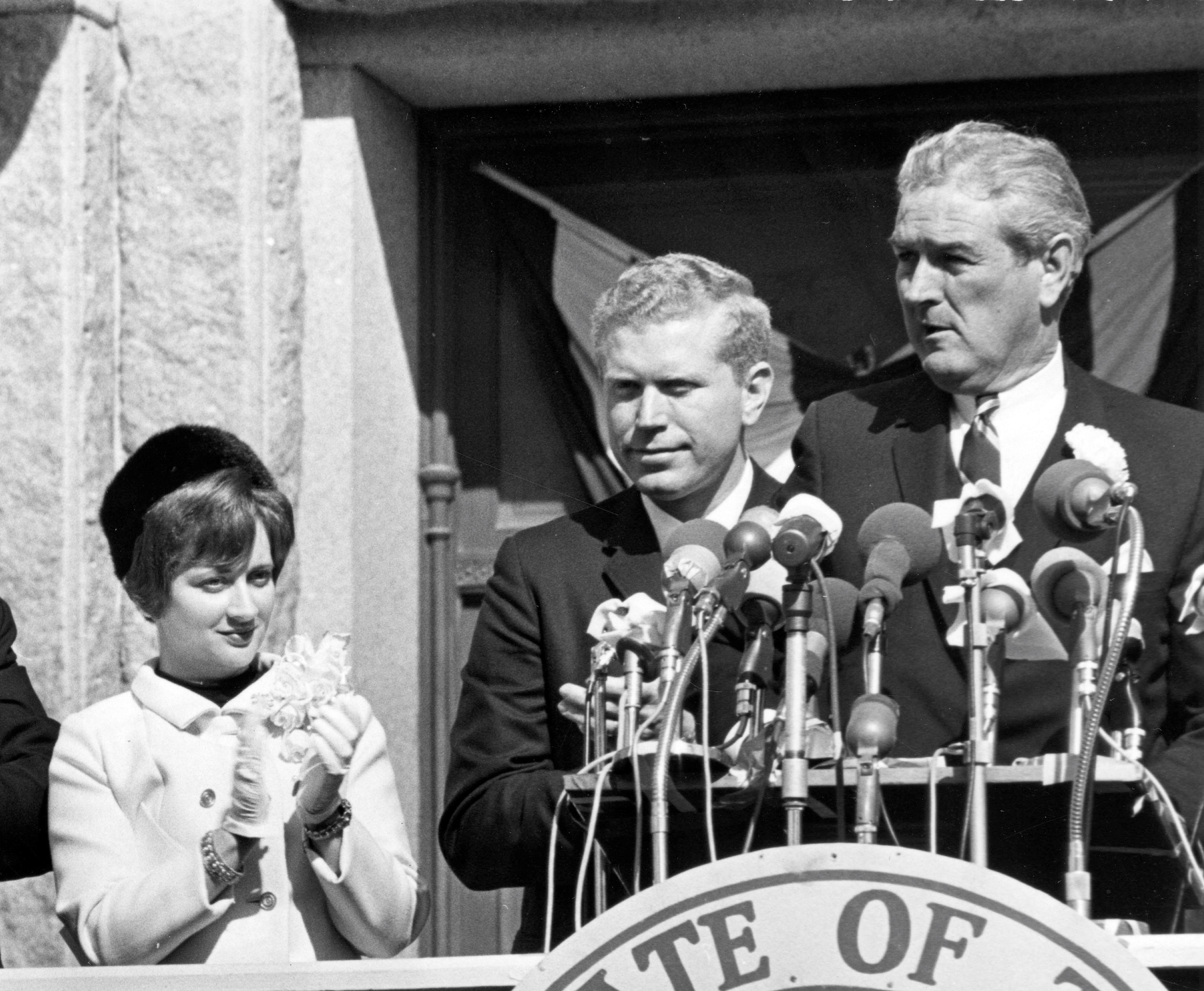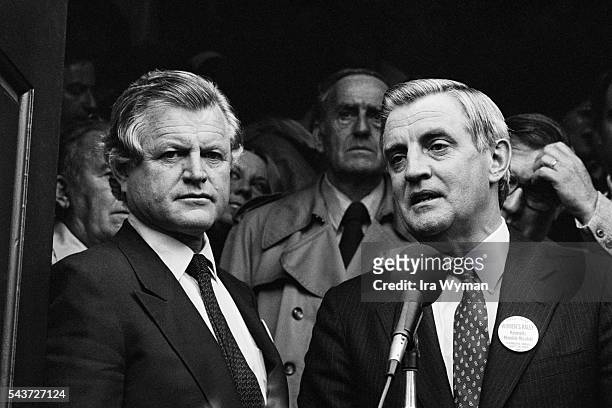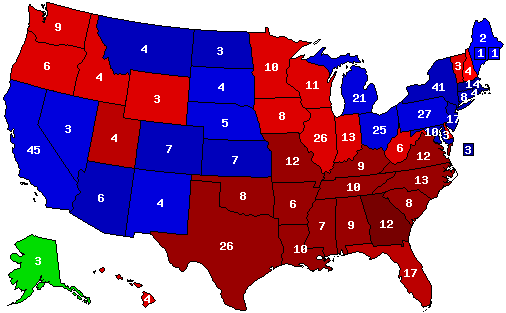Chapter 5: The Knight vs the Peanut Farmer
"For all those whose cares have been our concern, the work goes on, the cause endures, the hope still lives, and the dream shall never die. My friends vote your conscious this November," Ted Kennedy speech at the Democratic convention in New York.

Jimmy Carter would have been celebrating the disunity and mudslinging in the Republican primaries if it were not for the fact that his party was even less united. With a stagnating economy, the energy crisis, and rising inflation the least he could have asked for was an easy path to the convention, but for Senator Ted Kennedy that was too much to ask. Ever since 1968 after his brother's assassination, there had been calls for Kennedy to run, but each time he had declined. This was not due to a lack of ambition, but rather to a single event that he felt would kill any national campaign he started. Ever since 1969 he had been haunted by Chappaquiddick where he had killed a female staffer in a drunk driving accident, and had refused calls to run in both 1972 and 1976, although he could have easily won the nomination in both those years. But in 1979 he changed his mind. Tired of Carter's fiscal conservatism and ineffectiveness he laid the groundwork for a presidential campaign. On October 29th a "Kennedy for President Committee," was formed and he became a candidate the same day, yet, he planned to hold off his official announcement until November 7th. However, he would be forced to make his announcement sooner following an interview with Roger Mudd on November 4. During the interview, Mudd asked him why he wanted to be president, a seemingly simple question that caught Kennedy off guard since he was planning to hold off his presidential announcement. Instead of trying to evade the question he explained why he was running for president after a brief pause.
"Well, I'm planning on running because I don't believe that President Carter is an effective leader of either the democratic party or the country. His economic policies differentiate very little from President Ford's and he has not handled our domestic problems or our oil shortage adequately and I think our party and our nation needs a more liberal and a more capable alternative to the President, and I think I am that alternative."
While his long pause was noticed by some the main story from the interview was his campaign announcement. Initially, polls showed Kennedy beating Carter by wide margins, with one polling showing him beating Carter 54 to 20 percent. He also started to pick up endorsements from many members of the party's liberal wing like Mo Udall and George McGovern as well as its labor wing receiving endorsements from the AFL-CIO and other prominent unions upset with Carter's lax record on organized labor. His lead continued through December and the beginning of January, however, events from the Middle East would soon change the dynamics of the race. After the fall of the pro-American Shah in Iran, an anti-American government formed in the country as the radical cleric Ayatollah Khomeini took over. Tensions grew worse as President Carter let the Shah into the country to receive medical care which led to an explosion of anti-American protests in Iran culminating in a group of students kidnapping the members of the American embassy on November 4. As the months went on Carter's approval ratings went up as he adopted as voters appreciated his calm handiling of the crisis. In the lead-up to the Iowa Caucuses Carter started to beat Kennedy in the polls for the first time which tempted Kennedy to attack Carter's actions during the hostage crisis, however, he decided agaisnt it realizing that it could only hurt him. Instead, he attacked Carter on domestic issues like his failure to advocate more strongly for the ERA and his use of Taft-Hartly during a coal miners' strike in West Virginia. However, this wouldn't be enough as Kennedy was soundly defeated in Iowa with Kennedy receiving 35 percent to Carter's 51 percent. The race would only get worse for Kennedy in February as he lost Minnesota and in his backyard, New Hampshire, only narrowly winning in Maine. In early March Carter would sweep most of the contests while Kennedy would only win in his native Massachusetts and Puerto Rico. However, in late March things would improve for Kennedy as he won both New York and Connecticut due to a high amount of support from Jewish and African American supporters. After his victories, things would start to turn back towards his favor as people started to become impatient with Carter's lack of action regarding the hostages. Kennedy would exploit the dissatisfaction with the Carter regime and would finally be able to attack his strategy in Iran. In April he would score major victories in Arizona, Pennsylvania, and Michigan as Carter's approval ratings dropped once again. Then on the twenty-fifth, they would collapse following a disastrous attempt to rescue the hostages that would result in the loss of six helicopters and the deaths of eight American personnel. Kennedy was quick to pounce on Carter's failures and called for a debate with Carter. He had called for one in January, however, Carter had been able to ignore it due to his revived popularity, but following the failed rescue attempt his refusal to attend a debate with Kennedy started to hurt his polling numbers even further. Without any major gaffes during his campaign, more democratic voters started to abandon Carter and vote for Kennedy, and in May he scored more wins in Colorado, Washington DC, Maryland, Nebraska, and Nevada while Carter struggled to win outside of the South. Desperate to put an end to Kennedy's campaign before the convention, Carter embarked on a major risk. He finally gave in to Kennedy's demand for a debate, but instead of debating him, he would let his Vice President Walter Mondale go agaisnt him. Mondale had done a good job in the past of defending him and Carter believed that he would do much better in a debate agaisnt his opponent than he would. He was sure that Mondale's warm Hubert Humphrey-esque charm would be better suited agaisnt the charismatic Kennedy than his own aloof and quiet personality would. He could also continue with his rose garden strategy and could focus on the Iranian crisis without getting bogged down in the primary fight. Kennedy eagerly agreed and the debate was held just two days before the June 3 primaries in Cleveland Ohio. As Carter watched the debate it quickly became apparent that his strategy had horribly backfired. Mondale did his best to defend Carter while he chastised Kennedy for exploiting the Iranian hostage crisis for his own benefit, but Kennedy quickly hit back and hurled attacks at the absent Carter, while largely ignoring Mondale. Toward the end of the debate, he would unleash his most damaging attack agaisnt Carter saying,
"If President Carter doesn't have the courage to debate me himself, how is he going to be able to face whoever the Republican nominee is? I guarantee you he won't be able to send Vice President Mondale in his place during a national debate."
(Ted Kennedy and Walter Mondale before the debate in Cleveland)
The results from the debate would be demonstrated in the June Primaries where Kennedy would narrow the lead between him and Carter even further by winning California, Montana, New Jersey, New Mexico, Ohio, South Dakota, and Rhode Island. By the time of the final contest in July Carter was only ahead of Kennedy by four percent with 46 percent of the vote compared to Kennedy's 42 percent. As the convention started on August 11th in Madison Square Garden no one knew whether the nominee would be Carter or Kennedy. While he hadn't succeeded in making the convention open, it would become so if Carter failed to win on the first ballot. With both candidates in a dead heat, many delegates attempted to draft Secretary of State Edmund Muskie however he declined to openly run. Many party leaders wished he had as Kennedy and Carter's supporters battled each other, some even engaging in fist fights as the convention quickly became the most violent and disorderly since the 1968 convention in Chicago. Despite Kennedy's efforts, Carter would barely win on the first ballot, yet even then the fight was still not over. The party's platform remained hotly in contention. Kennedy several days before had issued an ultimatum to Carter that he would only support him if he embraced some economically liberal policies, like a jobs guarantee, and a stimulus package. Carter would have none of it, however. Furious at Kennedy for his antics during the convention and the primaries he told his delegates to vote down all of Kennedy's proposed planks which led to all of them except the Stimulus plan being struck down. Outraged, a thousand of Kennedy's delegates, 30 percent of the total delegates of the convention walked out of the building and refused to endorse Carter. Complete disaster was only avoided by Kennedy's endorsement of Carter on the final day of the convention. His speech would cause the demoralized delegates to cheer as he finished, and it seemed as though the wounds caused during the primary could finally be healed. That was until Ted Kennedy said his final line of the speech, "Vote your conscious." In effect he had permitted his supporters to not vote for Carter. As he exited the podium Carter went up to shake his hand, but a still furious Kennedy walked past him in front of the whole convention prompting boos from the Carter delegates and cheers from what few Kennedy delegates were still in the hall. After Kennedy's rebuff Carter would give his keynote speech which would be a complete disaster and by the time the convention was over the party was less united than it had been before it. While democrats across the country were demoralized and disgusted and Republicans were amused and triumphant, one man sensed an opportunity.
Map of the Democratic Primary Results
Jimmy Carter-Red
Ted Kennedy-Blue
Uncommitted-Green


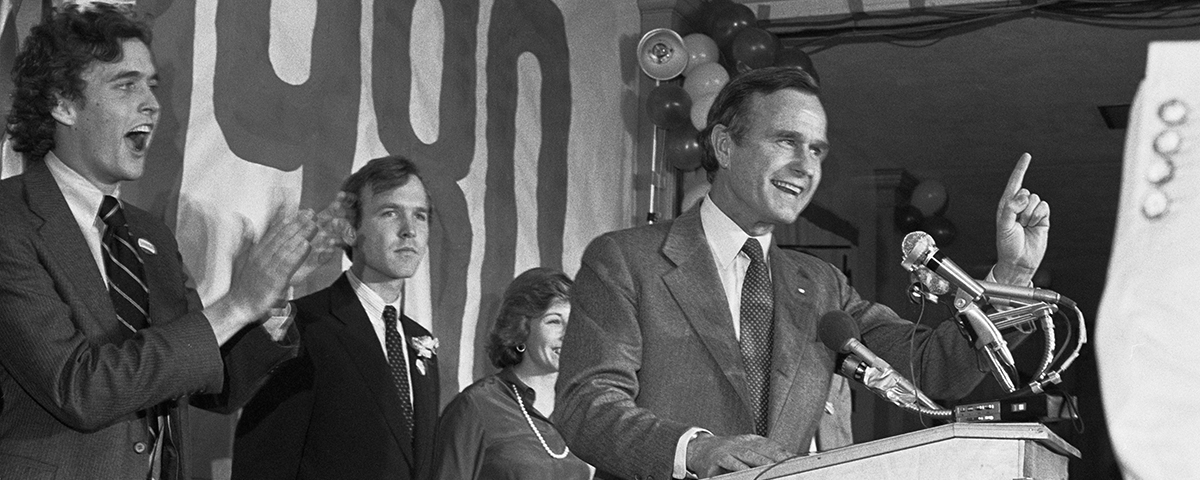
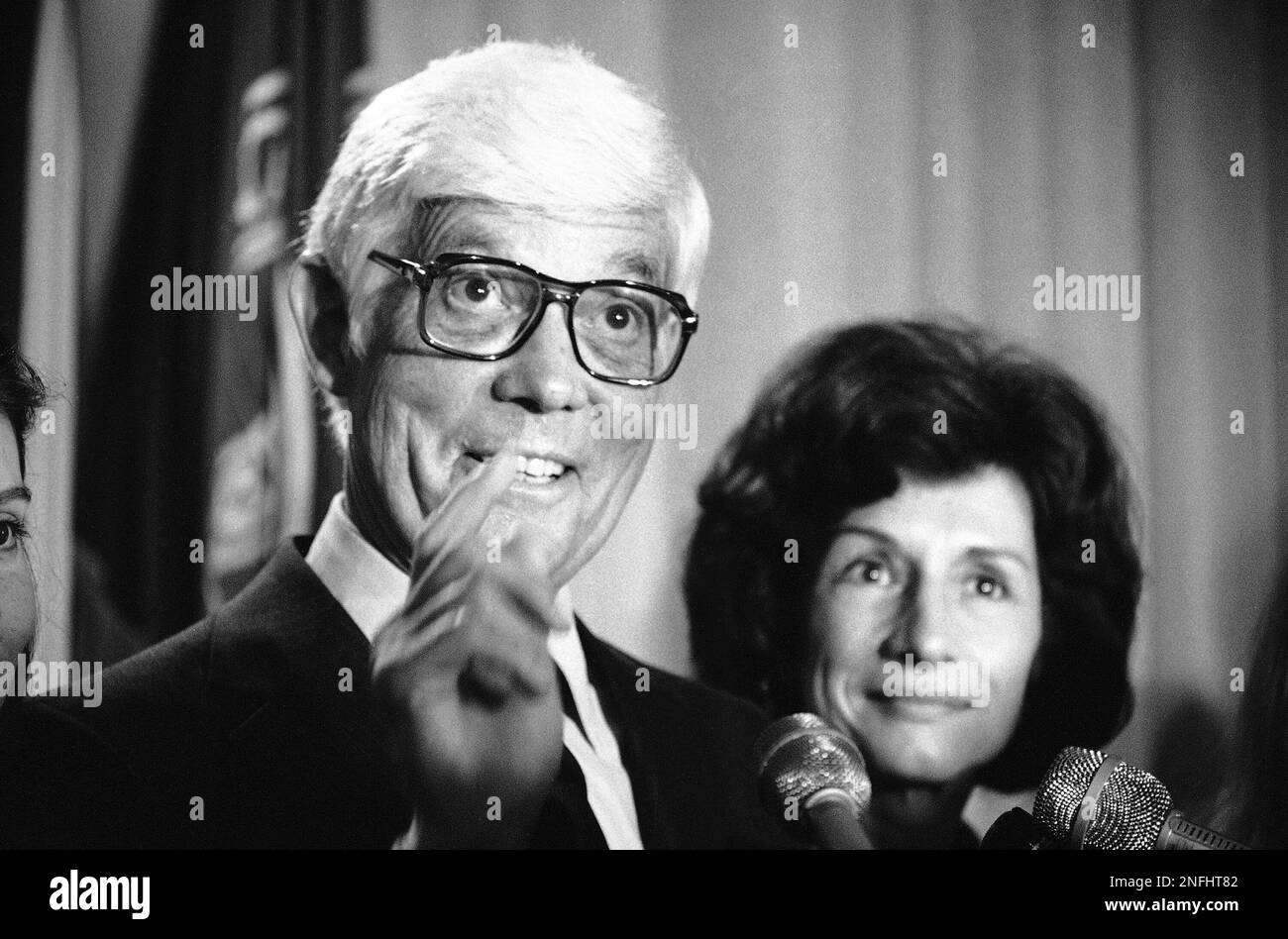
![Former Governor of Texas John Connally at a lectern, announcing his running for the 1980 Republican nomination at the National Press Club, Washington, D.C.] / TOH. | Library of Congress Former Governor of Texas John Connally at a lectern, announcing his running for the 1980 Republican nomination at the National Press Club, Washington, D.C.] / TOH. | Library of Congress](https://tile.loc.gov/storage-services/service/pnp/ppmsca/56500/56530v.jpg)
